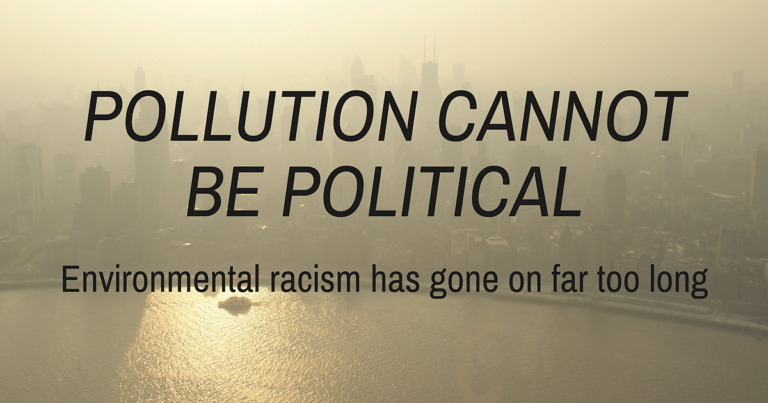
By Maia Berlow, Advocacy Intern at Waterkeeper Alliance
On June 14th, the Michigan Department of Health and Human Services Director Nick Lyon and four others were charged with involuntary manslaughter in an investigation of the Flint Water Crisis. Lyon is accused of failing to alert the majority-black population in the Flint area to a Legionnaire’s disease outbreak which led to the death of an 85-year-old man. Legionnaire’s is caused by breathing in small water droplets contaminated with Legionella germs, and the outbreak was likely due to a change in the city’s water supply from Lake Huron to the Flint River. These involuntary manslaughter charges are important to show that officials will be held accountable when they cut corners and hide inconvenient truths, thereby imperiling people’s lives.
In addition to possibly causing the Legionnaire’s outbreak, the change in the city’s water is also tied to the lead crisis. While under state emergency management for the city’s financial crisis, and with cost considerations topmost in mind, Flint began to use water from the Flint River but failed to treat it to reduce corrosion. Lead from old pipes leaked into the drinking water, resulting in elevated lead levels in children. Young children exposed to lead poisoning have been shown to develop cognitive deficits and long-term physical symptoms that can severely impair their own potential as well as income-generating abilities for life. This continued exposure and neglect resulting in serious health challenges is a form of child abuse, and officials need to be held accountable for the true nature of their crimes.
Flint’s water crisis is a clear example of environmental racism, a term coined in the 1980s to explain the disproportionate number of blacks exposed to polluted air, water, and soil. Pollution is political, and oftentimes, minorities and low-income residents live next to power plants, dumps, and industry, in flood-prone areas and in older buildings. In cities with limited budgets for infrastructure maintenance repairs, the more affluent neighborhoods usually receive such funding. Low-income communities often do not have the resources to fight new industry or even to obtain accurate information about the state of their local infrastructure, and the pollution can often go unnoticed or untreated by the government for years. From 2009-2014, as a result of the Great Recession, capital spending from states and local governments for wastewater and drinking water infrastructure nationwide dropped by 22 percent, making it harder for communities to fix our nation’s failing water pipelines.
Environmental racism has been a pressing issue long before Flint’s water saturated our front pages. In 1938, long after the impacts of lead was already known, the United States government mandated that lead paint be used in cheap government housing projects. Even though lead paint and lead pipes were finally banned in 1978, it was too late. Lead was heavily prevalent in low-income, urban communities, and lead continues to negatively impact those communities to this day. More than 10 years ago, Baltimore City public schools shut down their water fountains due to metal contamination. The water was only shut off once a parent advocate single-handedly tested the water in the public schools and presented the results to the school board. After Flint, countless other water infrastructure problems were revealed in cities across the U.S. After new statewide legislation mandated stricter protocol, around 400 schools in New York City were found to have lead-contaminated water. The CDC estimates that 11.2 percent of Black children and 4 percent of Mexican-American children suffer from lead poisoning, compared to 2.3 percent of white children.
There is often a lack of political will to fix water infrastructure, as it can be costly, and often does not build political capital or appeal. But clean water cannot be a game of politics. Access to clean water is a fundamental human right that must be taken seriously when it comes down to financial planning and policy creation.
A few senators and congressmen have introduced bills to limit water contamination that aim to ensure that crises like in Flint or Baltimore or New York do not happen. These bills need support and movement. However, there are also bills that aim to make it easier to pollute our water bodies and would allow continued contamination. The Senate’s healthcare bill to repeal and replace the Affordable Care Act, “The Better Care Reconciliation Act of 2017,” cuts 12% of the Center for Disease Control and Prevention’s funding, putting things like the Childhood Lead Poisoning Prevention Program at risk. It’s often politically popular to reduce “regulatory red tape,” but the permitting, processes and funding we have in place are there to protect the public and prevent health crises such as what happened in Flint. We need stronger water contaminant regulation, and we need to continue to enforce those rules we already have. The criminal indictments and the ongoing investigation into the Flint water crisis show that leaders must be held accountable for endangering people’s lives and should no longer be forgiven for decisions that prioritize politics over people. Hopefully, the seriousness of this investigation, whether it results in convictions or not, will cause a ripple effect that can remind those in public service who may be tempted to choose expedience and personal political gain over their own constituents’ health that environmental racism is real, indictable and will no longer be tolerated.
Maia Berlow is an Advocacy Intern for Waterkeeper Alliance and a student at Columbia University. She studies Human Rights and Ethnicity and Race Studies with a focus on how these topics relate to environmental issues.